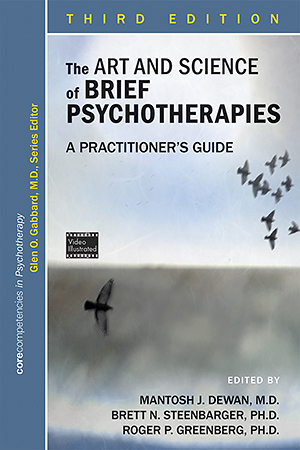Chapter 7.Cognitive Therapy
Sections
Excerpt
Cognitive therapy, also termed cognitive-behavioral therapy, is an extensively researched form of brief psychotherapy that has demonstrated effectiveness across a variety of psychiatric and medical disorders (Hofmann et al. 2012) as well as different patient characteristics, such as gender, age, sexual orientation, racial or ethnic background, and socioeconomic status. Meta-analyses have concluded that cognitive therapy can be used effectively in diverse treatment settings (e.g., inpatient, outpatient, school, forensic), exhibiting that it is an effective treatment in real-world settings (Chambless and Ollendick 2001). In adapting to new technology, cognitive-behavioral therapy interventions that are delivered through the Internet (e.g., iCBT) and as a computer-based treatment (e.g., cCBT) have been developed. Research has found them to be effective in treating anxiety disorders, depression, and somatic disorders, with improvement equivalent to that with face-to-face treatment (Andersson 2016; Andrews et al. 2010), although dropout rates are higher unless patients are treated simultaneously by clinicians (see Chapter 14, “Internet-Based Brief Therapies”).
Access content
To read the fulltext, please use one of the options below to sign in or purchase access.- Personal login
- Institutional Login
- Sign in via OpenAthens
- Register for access
-
Please login/register if you wish to pair your device and check access availability.
Not a subscriber?
PsychiatryOnline subscription options offer access to the DSM-5 library, books, journals, CME, and patient resources. This all-in-one virtual library provides psychiatrists and mental health professionals with key resources for diagnosis, treatment, research, and professional development.
Need more help? PsychiatryOnline Customer Service may be reached by emailing [email protected] or by calling 800-368-5777 (in the U.S.) or 703-907-7322 (outside the U.S.).



